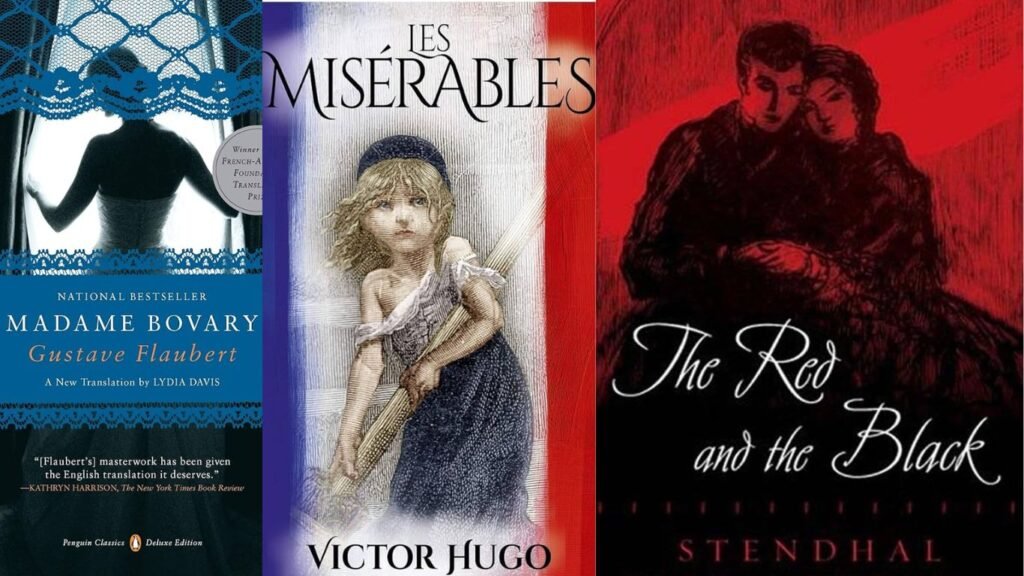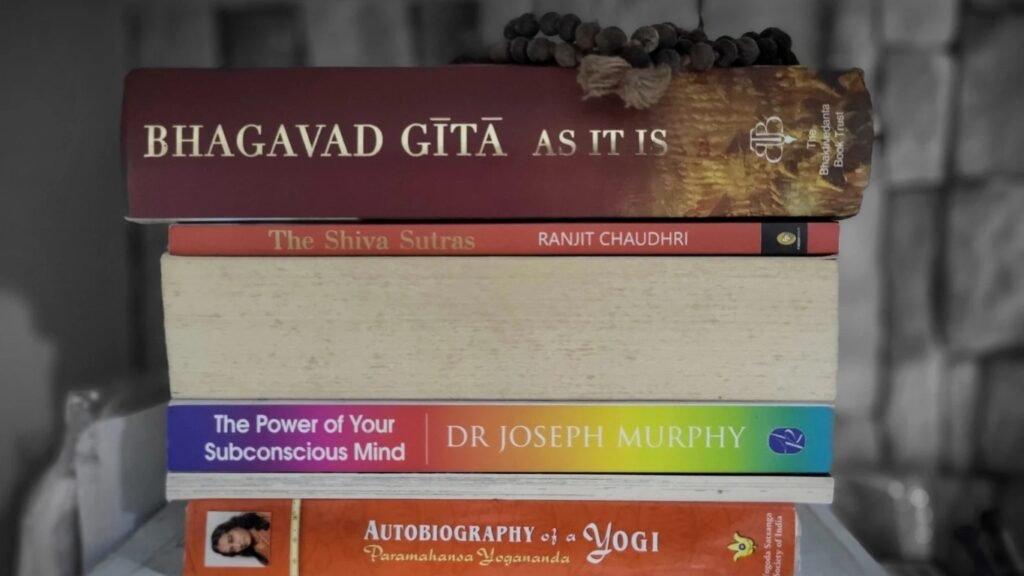5 Classic French Books You Should Read: French literature has long been celebrated for its depth, richness, and influence on the global literary scene. Its classics offer more than just tales; they are windows into the passions, struggles, and dreams that have shaped France’s cultural identity for centuries. Whether it’s through the romantic idealism of 19th-century Paris or the philosophical musings of existentialism, these books invite you into a world of intellectual adventure and emotional resonance. In this post, we’ll explore five quintessential French works that have stood the test of time, each offering a unique lens into universal themes of love, freedom, morality, and society.
Les Misérables
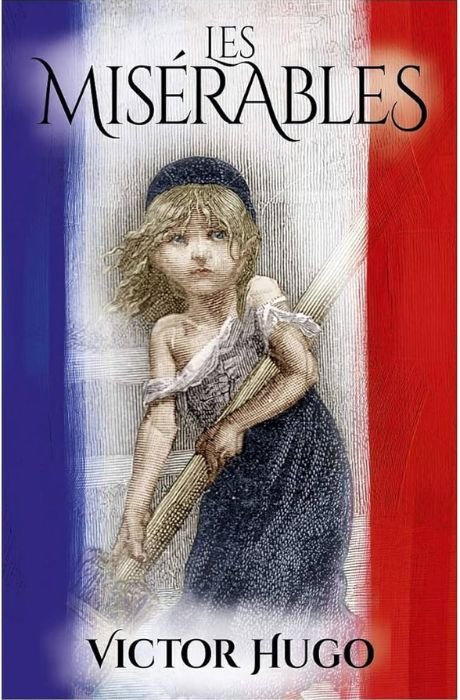
No list of French classics is complete without the monumental work of Victor Hugo, and Les Misérables stands as his magnum opus. At its heart is the unforgettable character Jean Valjean, a man released from prison after serving a nineteen-year sentence for the petty crime of stealing bread. Upon his release, Valjean faces a world that is both unforgiving and unyielding. His decision to break parole and reinvent himself as a successful factory owner and mayor sets off a gripping tale of redemption, resilience, and moral complexity.
At the center of this drama is Inspector Javert, the embodiment of rigid law and order, who relentlessly pursues Valjean, believing that a man cannot escape the stain of his past. This relentless chase becomes a symbol of the conflict between justice and mercy, the good and the evil, and the harsh realities of the nineteenth-century French legal system.
Beyond its compelling characters, Les Misérables offers a sweeping portrayal of France’s socio-political landscape during a time of great upheaval. Hugo masterfully weaves together the personal struggles of individuals like Valjean with the broader injustices of society, revealing the deep flaws of the French judicial and political systems of the time. His vivid descriptions of poverty, inequality, and the plight of the downtrodden shed light on the enduring struggle between the haves and the have-nots, a theme that remains strikingly relevant today.
But Les Misérables is not just a tale of political corruption or legal failings—it is, at its core, a story of human resilience and the capacity for change. Through Jean Valjean’s journey, Hugo explores the transformative power of love, forgiveness, and moral courage. This epic novel captures the complexity of the human spirit and reminds us that redemption is always possible, no matter the darkness of the past. If you want to immerse yourself in a book that not only reveals the struggles of nineteenth-century France but also resonates with timeless themes of justice, morality, and hope, Les Misérables is a literary masterpiece that cannot be missed.
The Second Sex
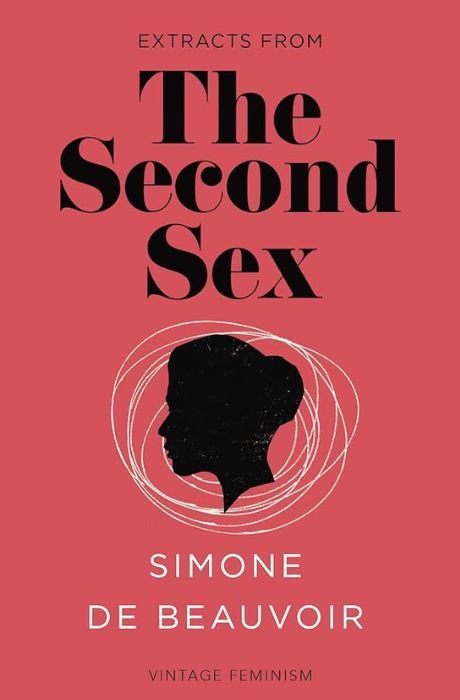
Often hailed as the Bible of Western feminism, The Second Sex is an essential cornerstone in feminist literature. Written by the French intellectual Simone de Beauvoir, this monumental work not only examines the role of women throughout history but also dissects the social, cultural, and biological factors that have contributed to their oppression.
De Beauvoir’s exploration spans vast epochs, beginning with Ancient Greece and moving through to the twentieth century, revealing how patriarchy has systematically shaped the status of women across time. She addresses women’s subjugation not just in society at large but also within the intimate confines of the home, in literature, and even in religious doctrine.
What makes The Second Sex particularly powerful is its blend of abstract philosophical thought and rigorous research. De Beauvoir delves into science, biology, and psychoanalysis to challenge the widely accepted views of women’s roles, especially in relation to their bodies. Through her groundbreaking analysis, she refutes the idea that women are biologically destined for subservience and reveals how much of what defines “femininity” is a social construct.
Though written in 1949, the book’s insights are still profoundly relevant. The fact that The Second Sex remains a critical text in discussions of gender equality today is a testament to its enduring power. For readers seeking to understand the historical and ongoing struggles of women—and the deeply entrenched societal norms that continue to shape gender roles—this is a must-read. The journey de Beauvoir sets before us is not a short one, but her work illuminates the long road ahead with a clarity and depth that still resonates.
Madame Bovary
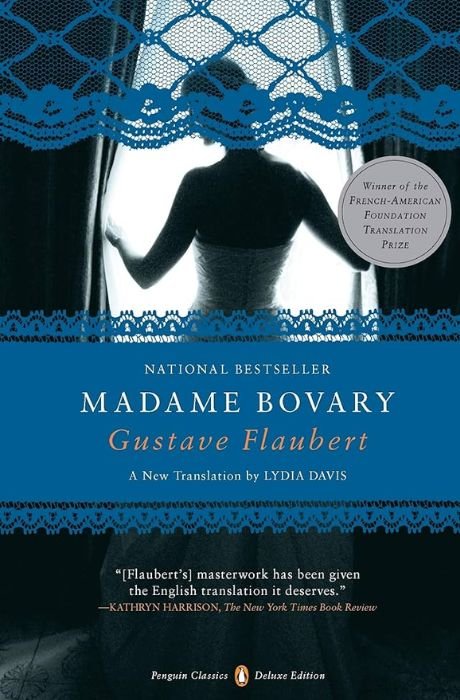
Gustave Flaubert’s Madame Bovary is one of the most compelling and tragic explorations of human desire and disillusionment in French literature. At the heart of the novel is Emma Bovary, a woman perpetually yearning for a life far grander than the one she lives. Having indulged in countless French romance novels, Emma creates an unattainable fantasy of what marriage and love should be, filled with grand romantic gestures, luxury, and high social status. She believes her marriage to Charles Bovary, a kind but unremarkable country doctor, will be her gateway to this dream. However, as her reality falls short of these illusions, Emma spirals into dissatisfaction, leading her to make increasingly reckless choices in pursuit of the life she craves.
Flaubert masterfully blends romanticism with realism in Madame Bovary. Emma’s grand dreams are beautifully juxtaposed with the mundanity of provincial life, highlighting the tension between fantasy and the harsh truths of existence. Her relentless pursuit of wealth, beauty, and passion ultimately becomes a poignant critique of the materialism and social expectations of the time, particularly for women trapped in the confines of traditional roles.
Emma’s character is both fascinating and heartbreaking. She is a woman ahead of her time in many ways, yearning for more than what society permits, but her inability to reconcile her dreams with reality leads to her tragic downfall. Readers who appreciate intricate character studies, as well as those who enjoy historical and classic themes, will find themselves captivated by Flaubert’s exploration of Emma’s inner world.
The novel’s realism is especially evident in its detailed portrayal of French society in the mid-19th century, where aspirations for upward mobility clash with rigid class structures, and where romance is often dashed by the banalities of daily life.
In Search of Lost Time

Marcel Proust’s In Search of Lost Time (À la recherche du temps perdu) is a towering masterpiece of French literature, and one of the most intricate explorations of memory, time, and human experience ever written. Spanning seven volumes, this monumental work is a semi-autobiographical journey that begins with a simple, yet iconic moment: the narrator bites into a madeleine, and the taste triggers a flood of memories from his childhood. This sensory experience unlocks a vivid recollection of his blissful upbringing, which serves as the gateway to a deeper meditation on the nature of time and existence.
The novel unfolds in rich, detailed layers, moving through a vast array of themes—romance, decadence, war, societal change, and human frailty. Proust’s writing is as much about these external events as it is about the inner workings of the mind. Through his stream-of-consciousness style, the narrator reflects on the passage of time and the ways in which our perceptions of the past shift and evolve.
At its core, In Search of Lost Time is a profound investigation into the hunt for truth in the fleeting nature of life. Proust masterfully explores how memories, however imperfect, shape our understanding of ourselves and the world around us. Romance, love, and loss are filtered through the prism of time, showing how our relationships—both with others and with our own experiences—are altered as the years go by.
The novel also delves into themes of societal change, capturing the decadence of the French aristocracy and the upheavals of war. Yet, amidst the sweeping historical and cultural shifts, it remains deeply personal, as the narrator searches for meaning in both the grand and the everyday. While its length and depth may be daunting, In Search of Lost Time is a richly rewarding read for those who appreciate philosophical reflection and intricate character development.
The Red and Back
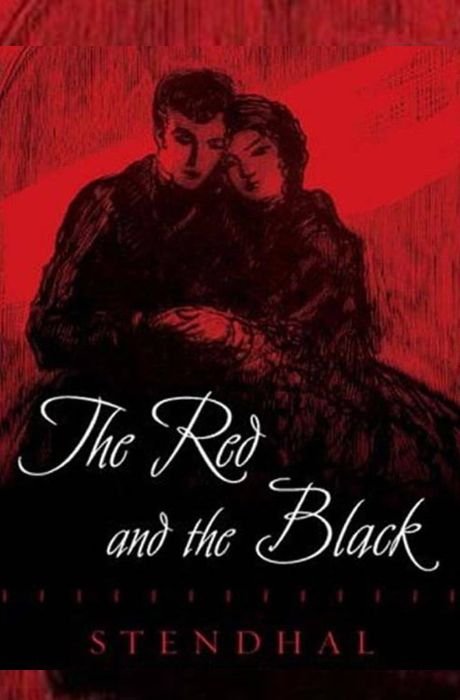
Our last mention in the list of Classic French Books You Should Read is The Red and the Black by Stendhal. It is a brilliant and biting commentary on ambition, hypocrisy, and the rigid class structures of 19th-century France. The novel follows the life of Julien Sorel, a young man of humble origins with towering aspirations. Julien dreams of elevating himself above his provincial background, but soon realizes that to succeed in the highly stratified society of his time, he must play a cynical game—embracing the moral compromises and hypocrisy that govern the materialistic upper class.
Julien’s journey is fraught with manipulation, deceit, and ambition as he maneuvers his way into the circles of the aristocracy. Though he is intelligent and driven, Julien becomes little more than a pawn to the powerful men around him, who view him as a tool for their own gains. His personal aspirations for power and success are complicated by his passionate love affairs, which further entangle him in the politics and treacheries of those above him.
What sets The Red and the Black apart is its satirical portrayal of French society during the Bourbon Restoration. Stendhal exposes the superficiality, vanity, and self-serving nature of the ruling elite, creating a scathing critique of the social and political climate of the time. The novel’s unflinching look at the clash between individual ambition and societal constraints makes it feel remarkably modern, even today.
The Red and the Black is often considered a novel ahead of its time, not only for its social criticism but also for its psychological depth. Julien’s internal struggles—his hunger for power, his contempt for the system, and his yearning for something greater—are timeless themes that continue to resonate with readers. His character embodies the tension between personal integrity and societal success, a conflict that feels as relevant now as it did in Stendhal’s day. For readers interested in a sharp, satirical examination of class ambition and the human cost of pursuing status, The Red and the Black offers a captivating and thought-provoking read.
ALSO READ:

